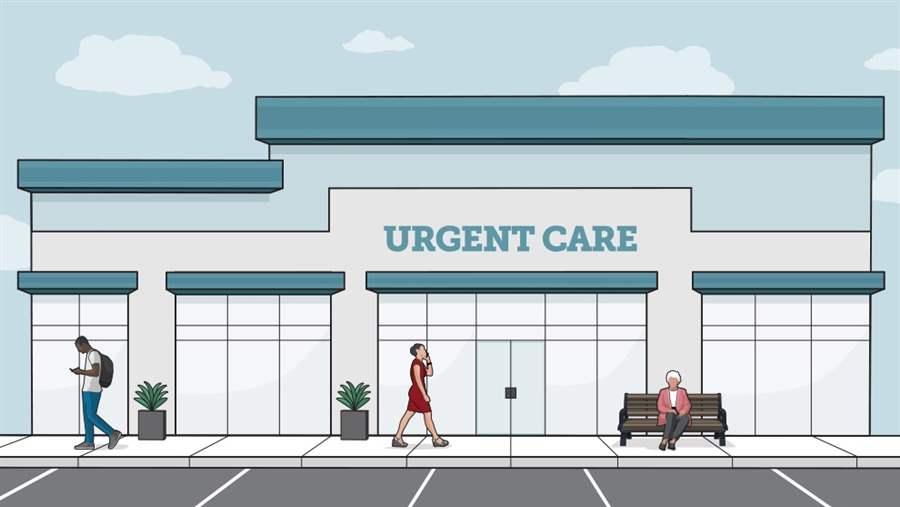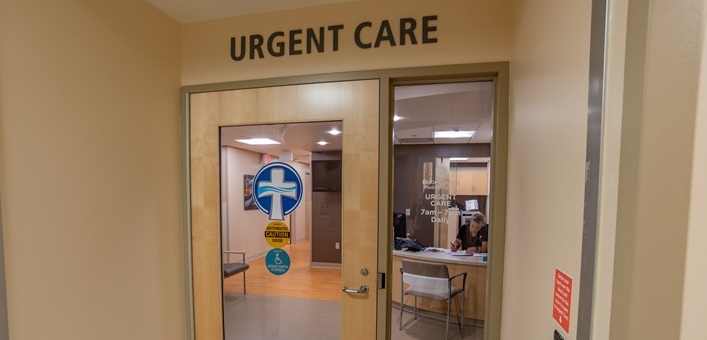Urgent Care vs. Health care: Which Is Right for Your Requirements?
Urgent Care vs. Health care: Which Is Right for Your Requirements?
Blog Article
Recognizing the Significance of Urgent Care Providers for Non-Life-Threatening Medical Issues
The importance of urgent care solutions for non-life-threatening medical problems can not be overemphasized, especially in today's medical care landscape. These centers provide a vital choice for patients looking for punctual attention for problems that need instant treatment but do not call for a visit to the emergency clinic. By recognizing the benefits of immediate treatment, such as decreased delay times and cost performance, one can better appreciate their role in client health management. The subtleties of exactly how to navigate these services effectively stay to be checked out, elevating inquiries about their optimal utilization.
What Is Urgent Care?
Immediate treatment refers to a category of medical services developed to address non-life-threatening problems that require instant focus yet do not call for a browse through to the emergency situation room. These centers provide a bridge in between health care and emergency services, using easily accessible healthcare choices for individuals experiencing intense clinical issues, such as minor fractures, sprains, infections, or extreme illnesses that emerge all of a sudden.

The scope of solutions provided by immediate care centers can vary but typically includes therapy for common ailments like colds, influenza, and allergies, as well as small injuries (urgent care). Furthermore, several urgent care centers use preventative solutions, such as vaccinations and physical examinations, to resolve more comprehensive wellness needs. By offering a practical choice for immediate medical problems, these centers play a vital duty in the health care continuum, making sure that clients get appropriate treatment when they need it most
Benefits of Urgent Treatment Services
Many people locate that utilizing urgent treatment solutions gives substantial advantages over typical emergency space brows through or waiting for a main care appointment. Immediate treatment centers commonly have much shorter delay durations, enabling people to receive timely medical attention when they require it most.
An additional benefit is the extensive hours of operation. Several immediate treatment centers are open nights and weekend breaks, suiting people that may not be able to see their health care medical professional throughout regular office hours. This adaptability makes it easier for patients to access treatment at their ease.
In addition, immediate treatment solutions frequently supply an affordable choice to emergency clinic. When looking for therapy for minor disorders at urgent care facilities instead than health center emergency departments., individuals frequently deal with reduced co-pays and general costs - urgent care.
Finally, urgent treatment centers are equipped to deal with a range of non-life-threatening problems, providing a broad variety of this services under one roof. This comprehensive technique not only streamlines the treatment procedure however also enhances client fulfillment by delivering prompt and reliable treatment.
Usual Conditions Treated
What kinds of non-life-threatening conditions can people expect to receive therapy for at urgent treatment? Urgent care centers are geared up to manage a vast range of typical medical concerns that require prompt interest yet do not posture an immediate danger to life. These centers generally deal with conditions such as minor cracks, sprains, and stress, giving important treatment for injuries that occur during day-to-day activities or sports.
Furthermore, individuals frequently look for treatment for respiratory infections, consisting of colds, influenza, and bronchitis, where timely intervention can reduce signs and protect against problems. Skin problem such as rashes, insect bites, and minor burns are likewise frequently dealt with, as timely care can alleviate pain and decrease the threat of infection.

Contrasting Urgent Care and Emergency Clinic

One considerable distinction lies in wait times; urgent care facilities typically have much shorter delay times compared to emergency situation spaces, which can be clogged with even more essential instances. This efficiency enables clients to obtain timely therapy for their conditions.
From an economic point of view, urgent care brows through often tend to be less costly than emergency room gos to. Insurance copays and out-of-pocket costs are commonly reduced at urgent treatment facilities, making them a much more affordable choice for non-emergency situations.
How to Pick an Urgent Treatment Center
Choosing the ideal urgent care facility can substantially improve the high quality of Get More Info care obtained during a non-life-threatening clinical issue. When selecting an immediate treatment facility, a number of vital aspects must be thought about.
First, assess the facility's accreditation and licensing. Some immediate care centers specialize in specific areas, while others offer thorough treatment for various clinical concerns.
In addition, take into consideration the location and hours of procedure. A comfortably located facility with prolonged hours can be vital for timely treatment. It's additionally recommended to examine the center's wait times and patient testimonials, which can provide understandings into the overall client experience.
Conclusion
To conclude, immediate treatment services play a vital role in addressing non-life-threatening clinical issues effectively. By supplying immediate focus for different conditions, these facilities boost patient access to prompt care while lowering the pressure on emergency situation spaces. The benefits of immediate treatment, including expanded hours and reduced costs, make them a beneficial option for people looking for timely therapy. Ultimately, comprehending the value of urgent treatment centers adds to enhanced healthcare management and individual complete satisfaction.
Several people find that using immediate care services gives substantial benefits over standard emergency room gos to or waiting for a key treatment consultation. Numerous immediate care centers are open evenings and weekend breaks, suiting people that may not be able to see their primary care physician during regular workplace hours. Immediate care facilities are made to resolve non-life-threatening conditions, such as small cracks, infections, and health problems, supplying a hassle-free option to emergency areas for those in need of instant care. Some immediate treatment centers specialize in certain locations, while others give thorough treatment for numerous medical concerns.
Report this page